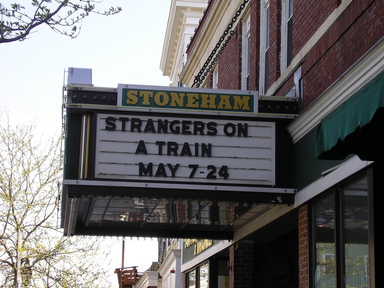Jeanette Winterson reviews in the today’s Times Joan Schenkar’s biography of Patricia Highsmith: ‘Patricia Highsmith said of herself, “I am always in love. . . .” Yet at her memorial service in Tegna, Switzerland, in 1995, there were no lovers from the past, and there was no lover to mourn her in the present. The service was filmed, which Highsmith would have liked, because although reclusive, she was interested in posterity. Such display also allowed Highsmith to hide in plain sight (as her hero Edgar Allan Poe put it in “The Purloined Letter”) the fact that all her relationships had failed. Highsmith had died in a hospital alone, and the last person to see her was her accountant. Highsmith was obsessed with taxes.
There had been so many lovers, usually women, but men, too, including Arthur Koestler, who had the good sense to give up. Highsmith was attractive to men and to women, until her diet of alcohol and cigarettes (she hated food) raddled her beauty.
Men never fired her imagination, except in her fiction, where her males, especially Tom Ripley, are versions of herself. It was women she wanted, and she found them in bars, on boats, at parties and, best of all, in settled relationships with other people.
Highsmith loved a triangle, and she liked to destroy it, axing the part of the couple she didn’t want, but usually sleeping with her first. Hers was a life jammed with encounters, and it is not by chance that her novels obsessively use the unexpected life-changing/life-threatening encounter as the drive into the narrative — think “Strangers on a Train” or any of the Ripley series.’
Winterson adds: 'Highsmith was never comfortable with blacks, and she was outspokenly anti-Semitic — so much so that when she was living in Switzerland in the 1980s, she invented nearly 40 aliases, identities she used in writing to various government bodies and newspapers, deploring the state of Israel and the “influence” of the Jews. Yet Highsmith had Jewish friends, and her first boss was a Jew who did nothing but support her work. She wrote him out of her history, as she did her stint at writing comic strips in New York in the 1940s.'
Anti-Semitic or not, I do like Highsmith’s work but I’ve read only a few of her novels.
Winterson is more critical: ‘How good a writer was she? “Strangers on a Train,” “The Price of Salt” and “The Talented Mr. Ripley” are hypnotic and amoral novels, pushing past any genre, unsettling the reader and using the limitations of her prose style — her karate-chop syntax — to create a powerful effect. My own feeling is that when Highsmith consciously tried to be literary it never worked, and when she went for money and fame (the more she earned the meaner she became), she found a formula and lost her form.’
